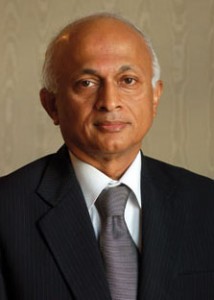|
 In
a major policy statement, Foreign Secretary Ranjan Mathai said that India had
an impeccable non-proliferation record and that the country had institutionalized
checks against export of strategic and dual use materials. In
a major policy statement, Foreign Secretary Ranjan Mathai said that India had
an impeccable non-proliferation record and that the country had institutionalized
checks against export of strategic and dual use materials. Mr Mathai pointed
out that India has consistent record of implementation of its voluntary commitments
and has made progress since September 2008 in the implementation of the Civil
Nuclear Initiative and that "India's impeccable non-proliferation record
has been widely recognized and was reflected in the milestone NSG decision of
September 2008 on Civil Nuclear Cooperation with India." There were
strict export regulations and as well as a keen watch by intelligence agencies
to ensure that even dual use materials were not sold to any country or entity
without procedural verification. Addressing the one day National Seminar
here on Strategic Export Control held jointly by the Ministry of External Affairs
and the Institute for Defence Studies and Analyses (IDSA), India’s premier
think tank, the Indian Foreign Secretary advocated full membership for India in
the four export control regimes. "While we wish to move forward in tandem
on all the four regimes, our engagement with NSG is seen by observers as the most
important. The logical conclusion of partnership with India is its full membership
of the four multilateral regimes", he reiterated. India has expressed
interest in joining the Nuclear Suppliers Group (NSG), Australia Group (AG), Wassenaar
Arrangement (WA) and the Missile Technology Control Regime (MTCR). Explaining
the rationale for export control, Mr Mathai said that India would increasingly
become an important hub of manufacturing and export of high technology items,
and it was important to adhere to the various international practices which India
has so far voluntarily adopted. Notably, he said, India has “a law
based export system, covering about nine different legislations,” and that
“the nation's export controls are in line with the highest international
standards.” |